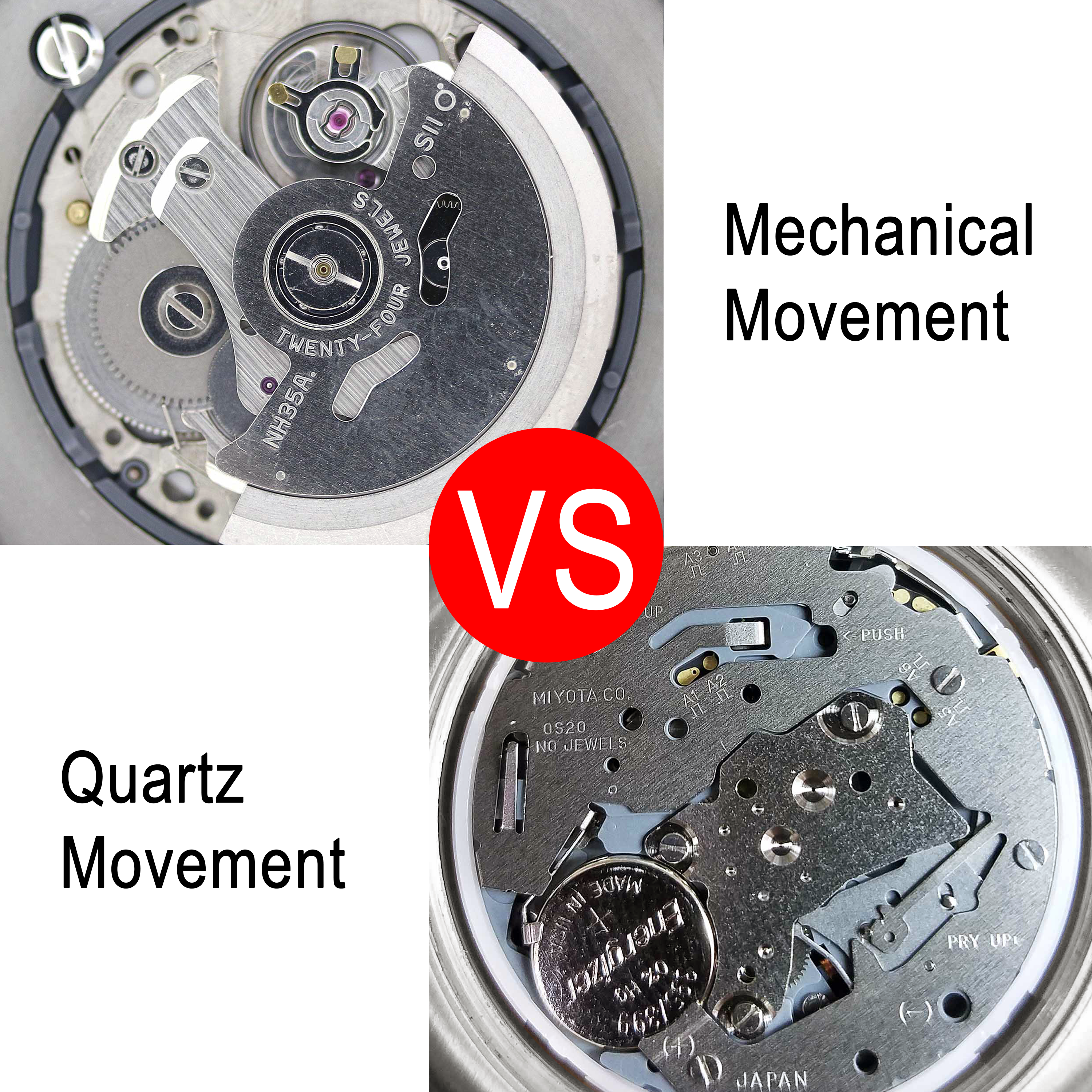Article: Mechanical vs Quartz Watches: What’s the Real Difference?

Mechanical vs Quartz Watches: What’s the Real Difference?

Two hearts, two philosophies: mechanical vs quartz.
When choosing a watch, one of the biggest decisions comes down to what’s inside: a mechanical movement or a quartz movement. Both serve the same purpose — keeping time — but how they do it, and who they’re best suited for, can be very different.
1. What Is a Mechanical Movement?
A mechanical movement relies entirely on gears, springs, and precise mechanics — no battery involved. It is powered by a mainspring, which stores energy and slowly releases it through an escapement and balance wheel.
We use the NH35 automatic movement from Seiko Instruments. It’s known for:
- Reliable performance
- 41-hour power reserve
- Hand-winding and hacking seconds
- Proven durability in the field
This type of watch is ideal for those who value tradition, feel, and craftsmanship.

2. What Is a Quartz Movement?
Quartz watches are powered by a battery and use a vibrating quartz crystal to keep time — typically accurate to within ±15 seconds per month.
- Miyota OS20: A chronograph quartz movement with stopwatch functionality, widely used in sporty or tactical watches.
- Miyota 2315: A classic 3-hand quartz movement with date, known for simplicity and long battery life.
Quartz watches require minimal maintenance, are usually more affordable, and provide reliable timekeeping right out of the box.

3. Key Differences at a Glance
| Feature | Mechanical Watch (e.g. NH35) | Quartz Watch (e.g. OS20, 2315) |
|---|---|---|
| Power Source | Wound mainspring | Battery |
| Accuracy | ±20-40 sec/day (factory spec) | ±15 sec/month |
| Movement Feel | Smooth sweeping seconds | 1 tick per second |
| Maintenance | Service every 3–5 years | Battery change every 1–3 years |
| Features | Traditional, mechanical beauty | Chronograph, date, multi-function |
| Price | Generally higher | Usually lower |
| Emotional Appeal | Collector’s item, heritage | Convenience, practicality |
4. Who Are They For?
Mechanical watches (like NH35):
Ideal for enthusiasts, collectors, and those who appreciate tradition
Great for gifting or ceremonial use (anniversaries, achievements)
Often heavier, with higher material presence and visual complexity
Quartz watches (like OS20 / 2315):
Perfect for everyday users, students, professionals who want worry-free timekeeping
Excellent choice for sports, travel, or rugged environments
Lighter, more practical for on-the-go lifestyles
5. Final Thoughts
Mechanical and quartz watches each offer something unique. One honors the soul of horology, the other represents modern efficiency. At the end of the day, both are valid expressions of your style, needs, and philosophy.
Choose the one that suits your lifestyle — or own both and switch with the occasion.

